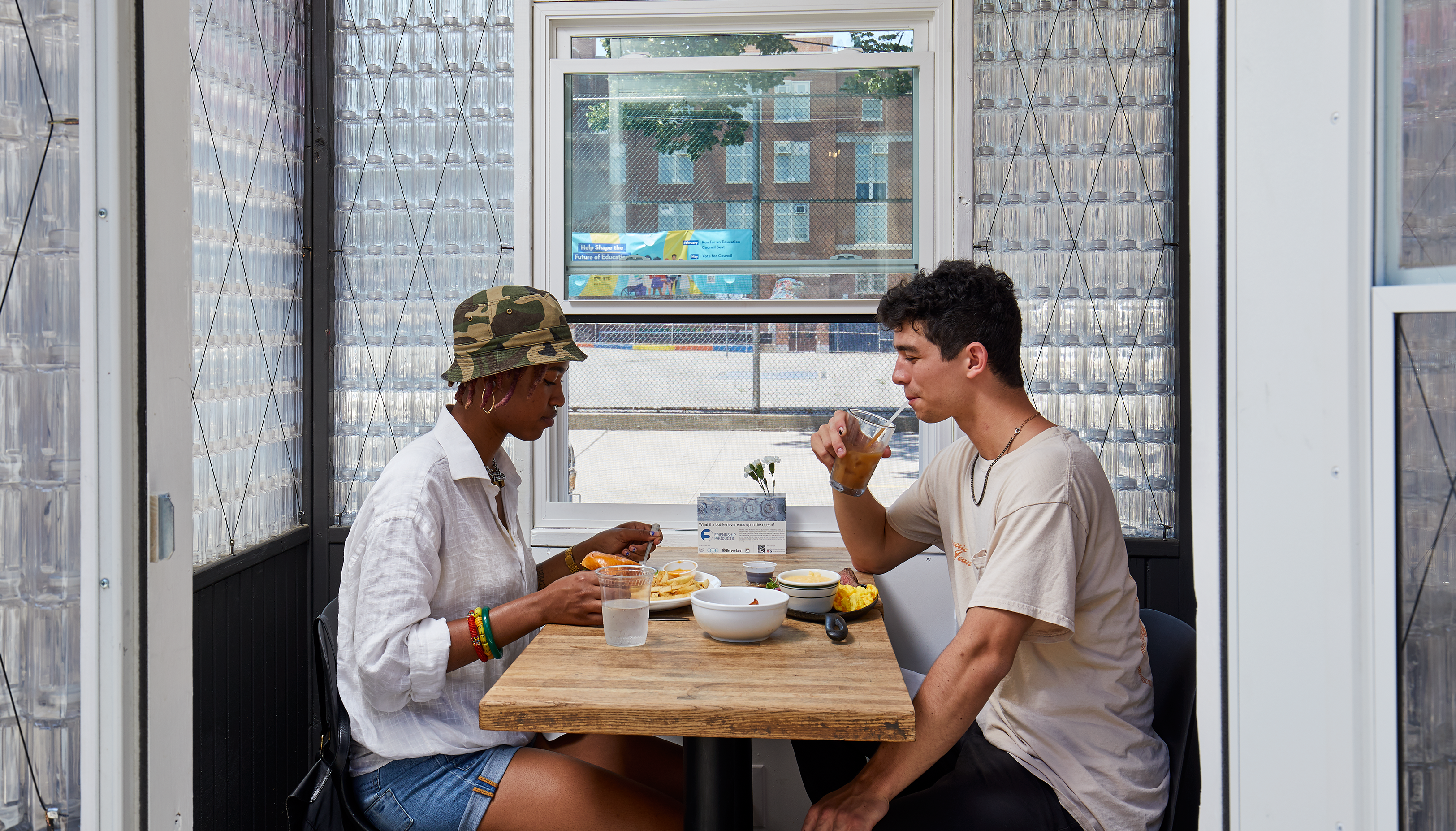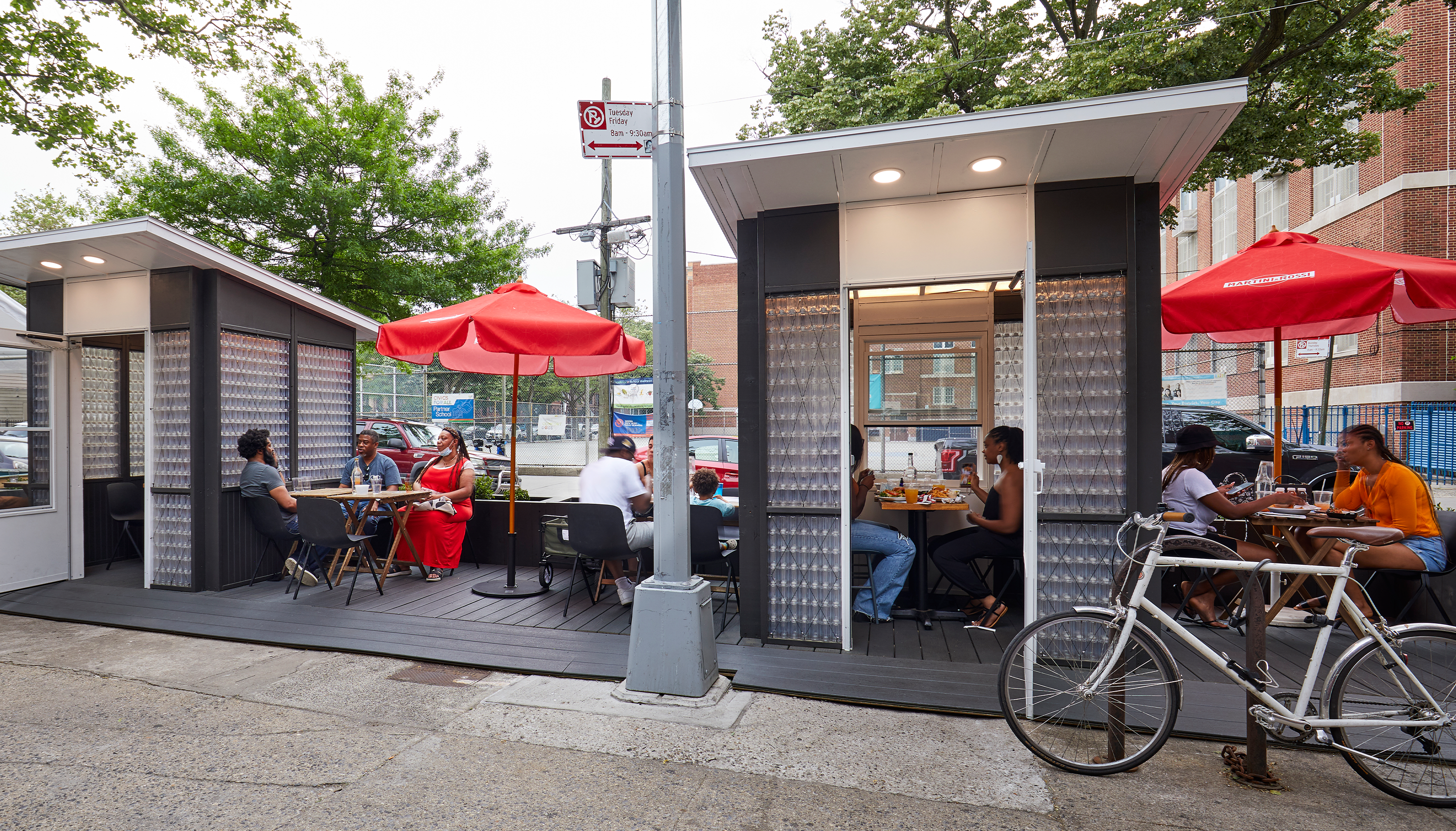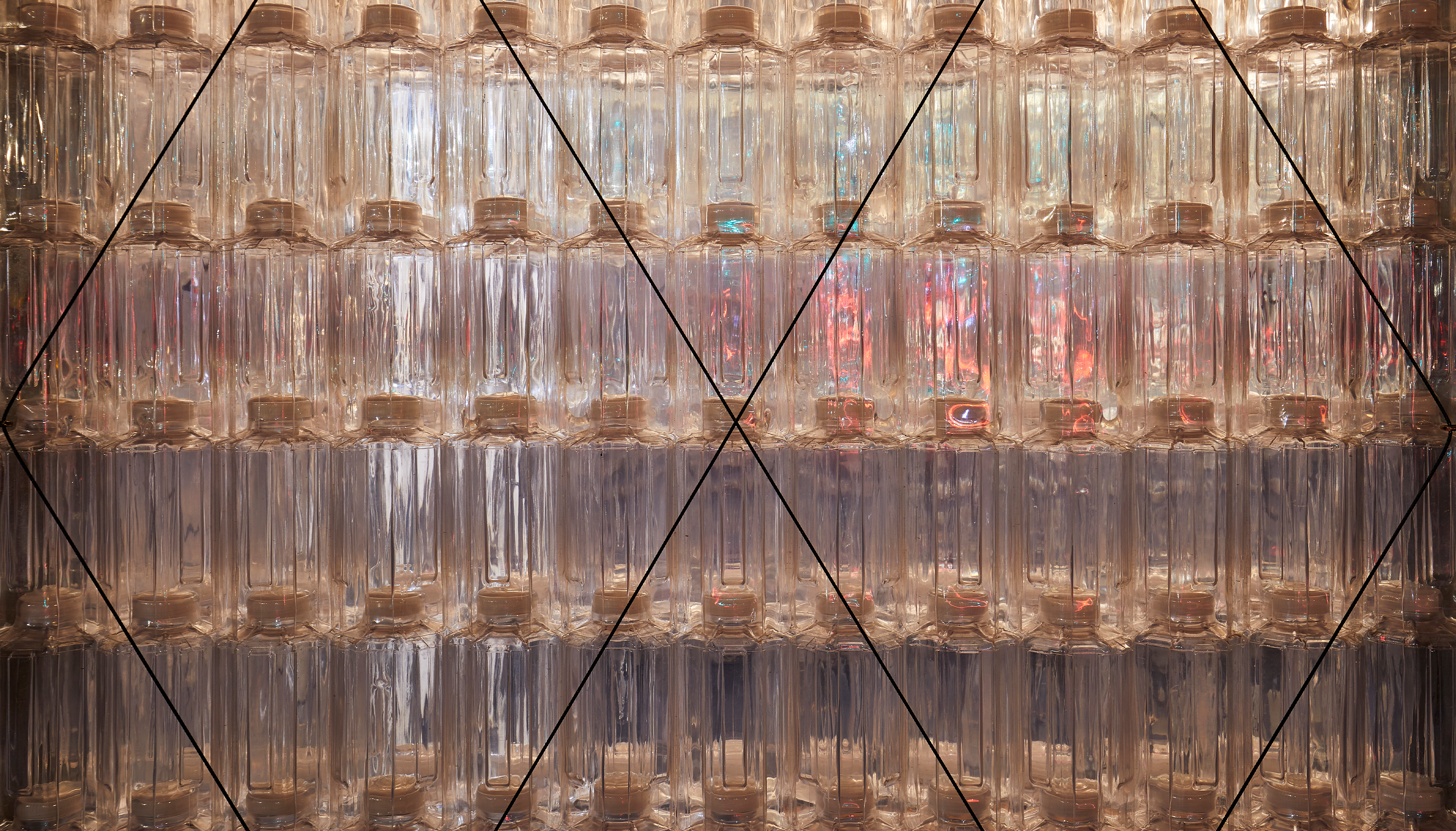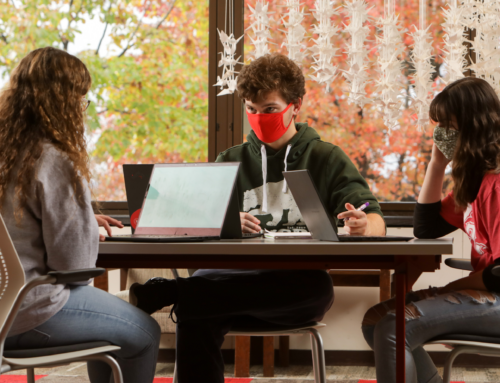By Josh Draper, lecturer in the Center for Architecture Science and Ecology
COVID-19 has turned our cities inside out, forcing us to inhabit and reconsider the outdoors, which, for a city, means the streets. Long dominated by the car, the latent potential of the street as a public plaza has reemerged during the pandemic. In New York City, the Open Restaurants program has responded to the decimation of the restaurant industry by establishing standards for outdoor dining. As of July 2021, more than 11,740 restaurants have joined the program in the Big Apple, resulting in the city’s urban fabric transformed by thousands of outdoor dining structures varying widely in quality from the nearly ramshackle to the luxurious to the visionary.
Open Restaurants, which is reprogramming the streets of the largest city in the United States, is nothing less than a Trojan horse for the future of the city. A modest lean-to outdoor dining shack with seating for 12 people is an initial proxy for the urban programming of emerging smart cities. With urbanization’s dramatic increase, smart cities — designed around concepts of adaptability, resilience, and efficiency — may be a crucial way to holistically address climate change.
Friendship Cabins, designed by researchers at the Center for Architecture Science and Ecology (CASE) at Rensselaer Polytechnic Institute, is a new outdoor dining installation at Peaches Kitchen & Bar in Brooklyn, New York. The cabins deploy techniques that, as a platform, build toward a resilient smart city paradigm. First, the cabins are outdoors but enclosed, isolating diners and enhancing protection for servers. They are constructed using Friendship Bottles, a prototype, interlocking plastic bottle that is designed to upcycle as a building component. This keeps plastic out of the environment while retaining the bottle’s embodied energy in useful spaces. Modular and moveable, the cabins envision flexible urban programming beyond the car while acknowledging the reality of street maintenance. The structures are designed for 105 mph winds, stronger than Hurricane Sandy, and shake-table tested.
Social distancing, waste upcycling, modularity, mobility, and structural performance are the base layers of the approach. But Friendship Cabins are also research testbeds. Near-term efforts include renewably powered lighting and ventilation systems with advanced sensing to address a hard lesson of COVID-19: even now, air in restaurants is under-addressed and under-regulated. How do we provide healthier, cleaner air? How does the restaurant industry develop a new kind of resilient hospitality?
Efforts toward urban resiliency in the face of climate change are complex and multi-scalar. Starting at the humble unit of an outdoor dining cabin and designing outward and upward is a good path to imagine a smart way forward.
Photo Credit: Jody Kivort, Friendship Products LLC.





